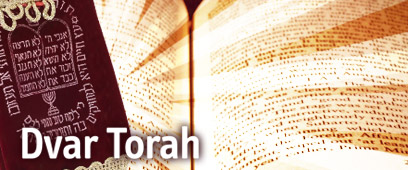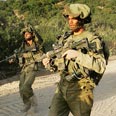

- To listen to the Dvar Torah click here
Imagine another scenario. A mother and son in a concentration camp. The boy is directed to the gas chambers while the mother is sentenced to life. She watches the child as he walks to his death. Should she reject life to embrace her child or abandon her child to embrace life?
A parent who dies to save the child would have died in vain had the other parent not remained alive to raise them. And in the second case, the mother who embraces life validates her child’s heroism by contributing to life. Had the child’s death triggered the mother’s death, it would have been a double tragedy.
Parents who are forced to make such agonizing decisions are likely to feel guilty for abandoning their child or spouse. But it’s important to remember that his or her survival is precisely what the deceased spouse or child would have wanted. One survival validates the other’s sacrifice. If both had dies it would have constituted an abandonment of the cause for which they had died.
Demoralizing? Not really
When our ancestors would mobilize their forces for war in the days of the Torah they were addressed by a high ranking Cohen who would offer brave words of encouragement of victory.
“Let your heart not be faint” he would say. “Do not fear the enemy and do not be terrified, for God will vanquish your enemy for you.” After his remarks, a military officer would announce “Any man who has built a home and not yet lived in it; Planted a vineyard and not yet make it useful; betrothed a woman but has not yet married her, should return home, lest he die in war”.
This is an astounding time for such an announcements. The Cohen had just built up their morale and now the officers set out to demoralize them by thinning their ranks? These announcements must have a deeper meaning.
The Talmud Sotah 44b comments that the order of these announcements reflects the proper conduct of life. First we should build a home, then plant a vineyard or establish a source of income, and only then should we marry. This remark indicated that our sages viewed these announcements as reflection on the ordinary routine of life.
The routine of life
Why does an army go to war? To protect its national interests. What is a nation’s interest? It’s citizens unhindered pursuit of life’s ordinary routine. When this is threatened, the nation’s very fabric is undermined. Rather than thinning their ranks, these announcements were made to remind the troops of their exalted purpose, to enable their comrades to pursue the normal routine of life, to build homes, plant vineyards and marry.
The troops that were sent home knew that they were entitled to stay home and not go to war, but they came anyway, because they couldn’t not come. They couldn’t sit home while their brothers fought for their country. It wasn’t easy for them to walk home and abandon their brothers, yet they were told to do just that.
Like the mother who embraced life when her son went to the gas chambers, these soldiers with their departure validated the efforts of their comrades on the battlefield. If they went to war, their comrades would have died in vain.
When the enemies of Israel threaten our cities with rockets and our lives with suicide bombers, the nation is justified in going to war. No argument can justify a ceasefire that doesn’t achieve the goals for which our nation went out to war. If our soldiers aren’t safe and our borders are still violated, then our war isn’t over.
Though we mourn the loss of innocent lives on both sides, we also pursue the war with a vengeance until peace can be restored. We don’t seek a peace that will lead to another war, we seek a war that will lead to lasting peace. Like the mother that embraces life to validate her son’s death, we too embrace life, but if victory is not achieved then those who died will have died in vain.
United we will stand
Just before the army embarked for war, one more announcement was made. “He who fears in his heart should return home, lest he melt his brother’s heart as well”. There are those who fear the consequences of war, but such fear is intolerable in war.
According to one of our sages, this announcement was directed towards sinners. An enemy that God promised to vanquished need only be feared if we are unworthy because of sin. Israel’s destiny is in God’s Hands. If we fear the odds in this war, it is because we are unworthy of God’s miracles. The obvious antidote to such unworthiness is repentance.
This time of year is conducive to repentance. As we reflect upon our behavior of the past, we must reflect not only because we bear the consequences of our sins, but because our nation bears the consequences of every Jew’s sins. United we will stand. And when we repent this year, we must remember that we aren’t repenting only for ourselves, but for our entire national destiny.
Rabbi Eliezer Gurkow is the rabbi of Congregation Beth Tefilah, London, Ontario (Canada)
Courtesy of the Orthodox Union Take Five for Torah program















